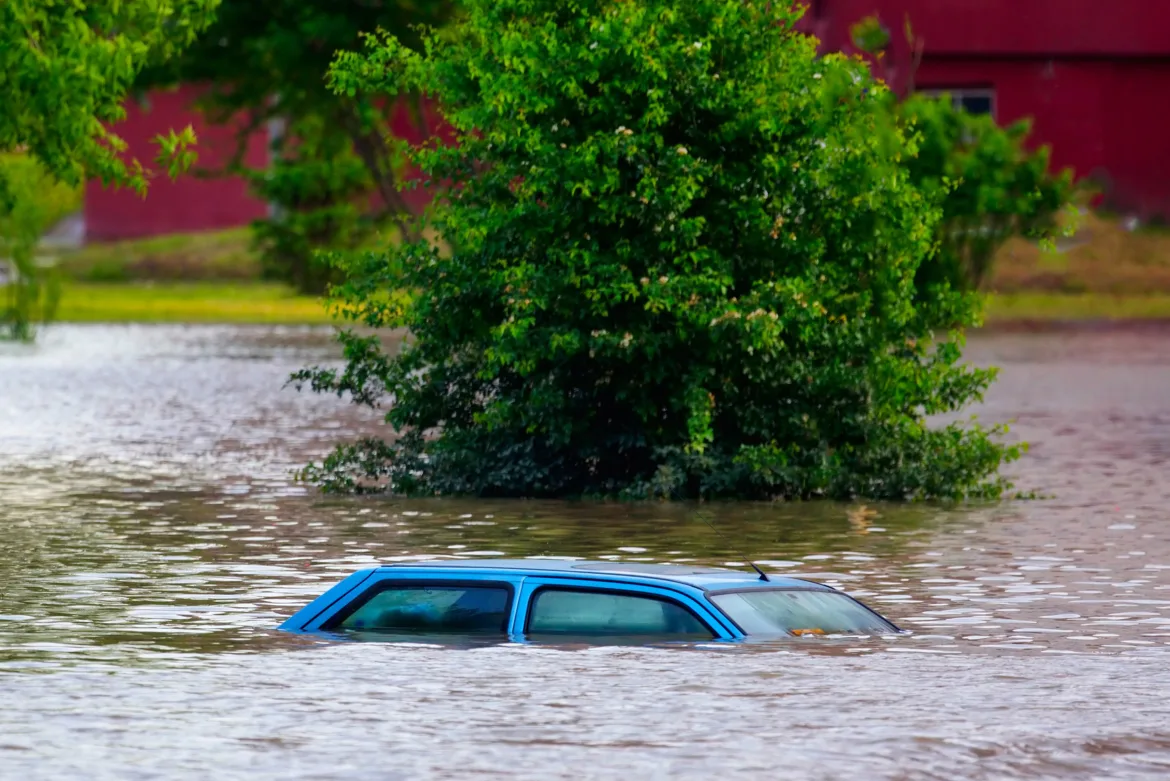Water and Flood Damaged Cars: What You Need to Know

A salvage title car doesn’t always look how you’d imagine: a total wreck with major visible damage, broken windows, and oil leaking all over the place. Especially when you’re looking at water and flood damaged cars. They may look pristine, but there can be hidden problems that you need to be aware of before bidding on them.
First things first, though: identifying a water or flood damaged car. Aside from the obvious, a flood/water damage branded title, there are some telltale signs you can look for when searching for a salvage vehicle.
Check the interior
When checking a car’s interior, a musty or mildewy odor or can be a sign of water damage, and an indicator that there may be toxic fumes in the car. Dirt in places that it really shouldn’t be – like underneath the dash or in the door handles – can also indicate that the vehicle was submerged to a pretty high level. Look for moisture in unusual places as well, like the instrument panel or interior lights. You should also push on the seats and check in between them if you can for any odd gunk or moisture. Pull up the carpets and check for excessive moisture there. Check the rubber drain plugs under the car and on the bottoms of the doors, too. If they’re gone, that means they may have been removed to drain water.
Check the exterior
As far as the exterior of the vehicle goes, check for moisture inside the lights. You may see actual water droplets or the remnants of a water line, but either one is an indication of previous water damage that would warrant further investigation.
Check the undercarriage for extensive rust. A little bit can just be signs of an older vehicle, but an excessive amount can indicate that the vehicle was submerged under water. Pop the trunk and check the engine bay: if everything in there is coated in rust, you can be sure that the vehicle was submerged and there may be some pretty serious engine issues.
If you aren’t equipped with the knowledge to really inspect a car yourself, you should bring a mechanic along. You can hire a third party service to conduct the inspection for you if the auction yard isn’t nearby.
We put together an engine checklist and an interior checklist that you should check out, too.
So, you’re still interested in flood damaged cars
But that doesn’t mean that it’s a total flop. If you’re looking for a short term solution for your transportation needs, a flooded vehicle isn’t a bad choice. Even if a vehicle has early signs of corrosion, it may take a pretty long time for the damage to start affecting the way the vehicle runs so you may be able to make repairs as they are necessary. There are some issues that need to be addressed upfront, though.
One of the most important things to look into is if safety components have been compromised. Airbags, anti-lock brakes, and other components may have been compromised. Take a good look at your brakes, and bleed them. Water damage can warp rotors and get into brake lines, which is a serious safety issue.
It’s a good idea to take note of any visible water lines as this can give you a good idea of how much damage was done, and what components may have been affected. If you notice signs of water damage, flush all the fluids before turning the vehicle on. Any fluids that have been contaminated with water that continue to run through the engine or other components may cause further damage. If you know how or where the vehicle was submerged, that can help you make your decision as well: saltwater is significantly more corrosive than freshwater.
Take measures to protect yourself
Always, always, always run a VIN check before buying any vehicle. Even if you can identify the damage in front of you, there may be odometer fraud or other hidden issues that you can’t see without a comprehensive vehicle check. A free license plate lookup can also reveal important information about a vehicle, such as its registration status, accident history, and even its previous owners.
Even if a car’s title doesn’t have a water/flood brand, it may have in the past. There’s a practice called “title washing,” in which a car is registered in a state that has slightly more relaxed rules regarding registration. Sometimes people try to register water and flood damaged cars in such states to remove the title brand, so a comprehensive vehicle history report is a surefire way to avoid fraud. Long story short, though: each individual car with water or flood damage has its own story, so inspection is key.
If you’re thinking about buying a salvage car with water or flood damage, we have lots going up for auction. Head over to our vehicle finder if you’re looking for something else!
Happy bidding!
- The Advantages of Salvage Car Parts - November 3, 2025
- Buying Salvage Cars: What to Expect on Auction Day - May 22, 2025
- Is Buying a Hail Damage Car Worth It? A Detailed Guide - December 2, 2024